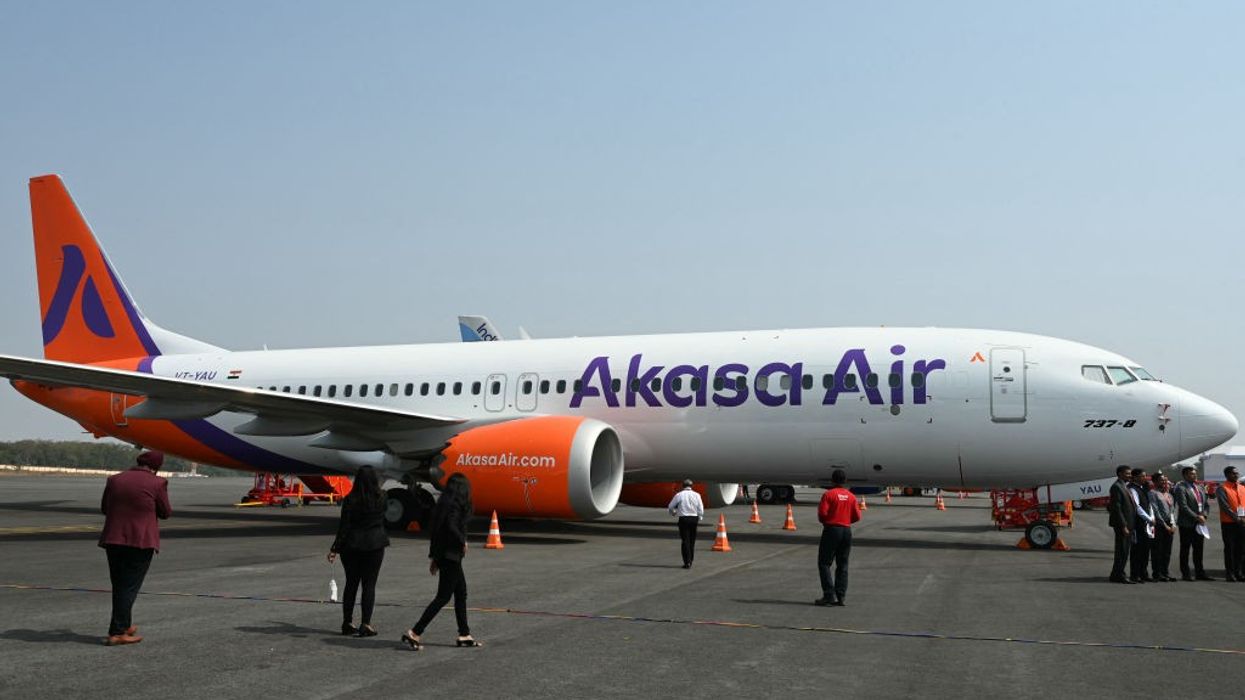INDIA's Akasa Air said on Thursday (18) it has ordered 150 Boeing MAX narrowbody planes, showcasing its confidence in the troubled planemaker as the budget carrier seeks to fly to more destinations at home and abroad.
This is the first major order announcement for Boeing's MAX jetliner programme since a mid-air cabin panel blowout in the US early this month, although Akasa's order does not include the 737 Max 9 version which is in the spotlight after the incident.
The order was announced at the "Wings India" air show in the southern city of Hyderabad, which has attracted planemakers, airlines and government officials as they make the most of India's travel boom, with a greater focus on international routes.
"We feel very confident about the aircraft type that we have ... even seeing Boeing's commitment to the way they've handled this problem," said Priya Mehra, Akasa's chief legal, regulatory and strategic relations officer.
Akasa's order for 737 MAX 10 and MAX 8-200 does not include the MAX 9 version, which has been largely grounded over the Alaska Airlines cabin panel blowout incident.
Mehra said the airline was not looking at diversifying its fleet. It currently operates 22 aircraft and will receive deliveries of a total of 204 planes over eight years.
Further terms of the Boeing deal were not disclosed.
Although India is now the world's fastest-growing aviation market, with travel demand outstripping the supply of planes, the bulk of international traffic is captured by global carriers such as Emirates.
Civil aviation minister Jyotiraditya Scindia said he expects the country's fleet size to surge to 2,000 in the next decade from about 700 currently.
At present, IndiGo, Air India and Akasa have orders pending for more than 1,500 planes, with multi-billion dollar deals announced last year.
Since it started flying in 2022, Akasa has garnered a market share of 4 per cent, while bigger rival IndiGo has the largest share at 60 per cent and Tata Group airlines have a combined 26 per cent.
Akasa plans to fly to Saudi Arabia, Kuwait and Qatar in the first phase of its international expansion, said Praveen Iyer, chief commercial officer.
The newest entrant to the Indian aviation industry was hit last year by the abrupt departure of about a tenth of its pilots, and had warned it was flying less as a result, costing it market share. It has since said the issue is behind it.
(Reuters)





